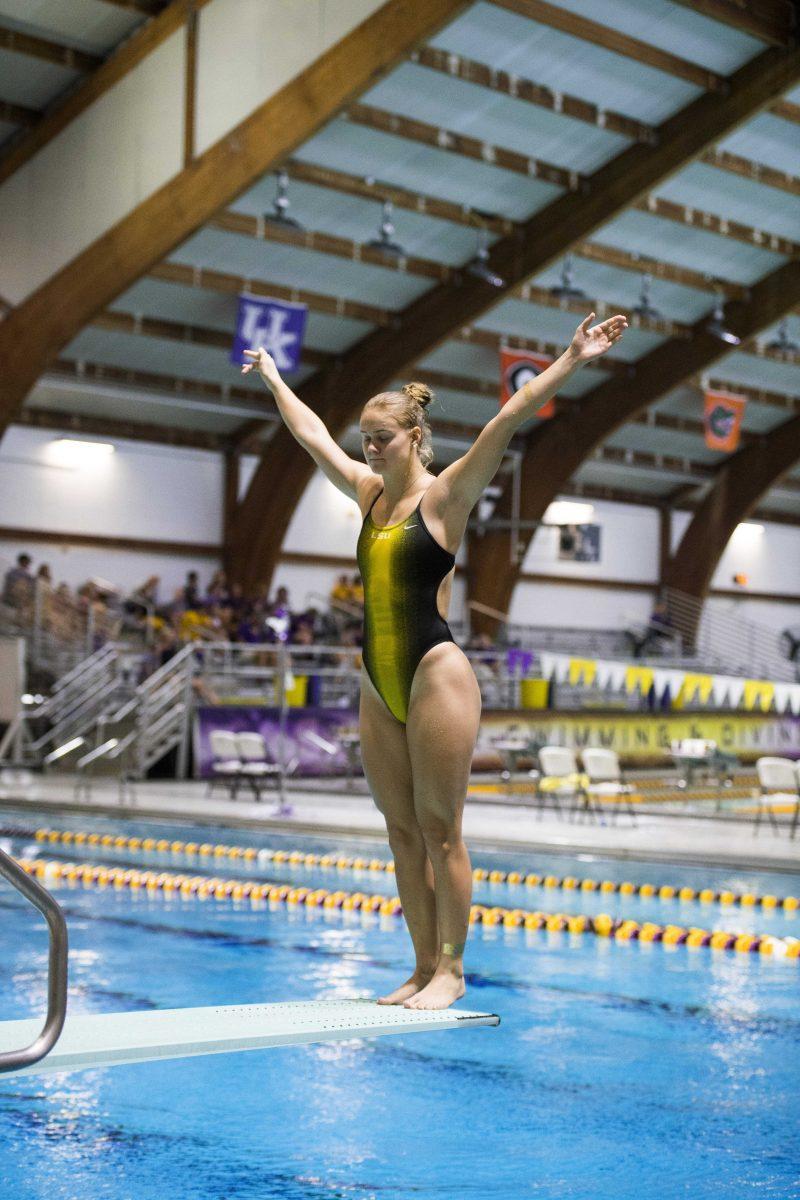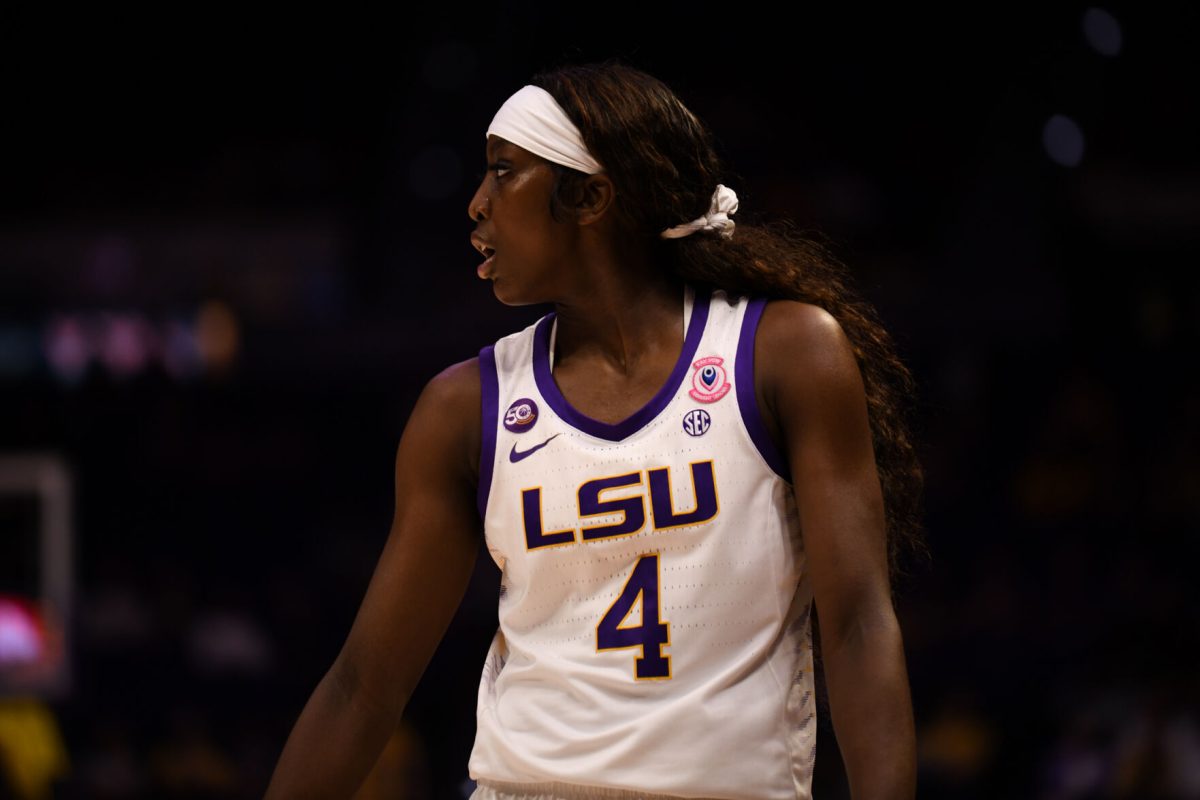As a child in Norway, LSU diver Anne Tuxen went door to door, asking neighbors if they played the lottery. If they did, she urged them to pledge a small percentage of their winnings to her diving club should they draw the winning ticket.
Norway taxes sports gambling and subsidizes youth sports with the revenue it generates, keeping clubs inexpensive and inclusive.
Most youth coaches are volunteers, overseeing competitions without ranking athletes or keeping score and encouraging children to participate in multiple sports. When the young athletes turn 13, they are free to pursue a sport full-time, but they must decide on their own.
“I like that we have the freedom to choose,” Tuxen said. “I think it’s important to actually have good communication with your kids because even though they’re kids, it’s their life. It’s not your parents’ lives.” “I don’t want to be forced into something because [that’s when] you start to hate the sport because it’s not your choice. So I want it to be my choice.”
Norway has cultivated its sporting success with a unique youth sports system, institutionalizing unique guidelines to ensure a young athlete’s well-being. This system has developed generations of dominant athletes, among them Tuxen, one of the most decorated divers in the history of Norway.
She was a finalist at the 2015 Senior European Championships. In 2016, she finished third in the synchronized three-meter event at the Junior European championships and 11th at the Junior World Championships. She also finished in the Top-10 three times at the 2018 European Championships.
Mention the 2018 Winter Olympics to Tuxen, and she will giggle with pride.
A Scandinavian nation, Norway has attained more medals, 329, than any other country since the inception of the Winter Olympics. In 2018, the Norwegians won 39 medals, the highest tally in the history of the games, quite a feat for a nation of only 5.3 million.
Yet Tuxen estimates she did not participate in her first competition until she was 10, around the time she committed to diving full-time. She was not alone.
All Norwegian athletes under 12 are protected under a document called Children’s Rights in Sport, a decree by the Norwegian Olympic and Paralympic Committee and Confederation of Sports. The document ensures “friendship and well-being” in youth sports, “opportunities for variation, training and interaction with others” for athletes and “competitions for everyone.” It also declares that “children have the right to choose which sport, or how many sports, they would like to participate in – and decide for themselves how much they would like to train.”
Norway’s system is a far cry from the American model of youth sports — plagued with helicopter parenting, early specialization, expensive club teams, intensive training, formal tournaments and distant traveling.
Which method does Tuxen prefer?
“I like our way,” she says, “but I would try to mix a little bit of your way.
“If you don’t want your kids to be graded or judged then what is that kid doing in sports? Because eventually it is going to be scored.”
Tuxen is conflicted. She seems frustrated that she had to wait to compete against her peers, yet acknowledges that a regimented program could go too far.
“Sport is not everything in life. It’s a big part, and it’s awesome, but family is more important.”
Tuxen attributes much of her success to her father, who coached her and her sisters as they grew up. But she sees an opportunity for even better coaching. She imagines what would happen if coaches did get paid and interacted with professionals, similar to the model in the US.
She adds that her delayed arrival to serious training and competition “made me more certain of my choice.” She says that if young athletes play multiple sports, not only will they make more friends, but they will also develop more values along the way.
She is thankful that she was even given the right to choose diving, calling the autonomy “so important.”
Tuxen’s career lies at the intersection of both worlds, at a nexus between relentless pursuit of excellence and strong commitment to well-being and inclusion. Perhaps her presence can help unite the two sides, infusing America’s resources with Norway’s ideals, and leading to a more balanced approach developing athletes.
To better understand Norway’s youth sports philosophies, Tuxen offers a summary:
“We do whatever makes us happy. We don’t follow everyone else, which is important.”
‘Sport is not everything in life’: LSU’s Anne Tuxen example of Norway’s youth sports system
By Reed Darcey
October 4, 2019
Anne Tuxen







